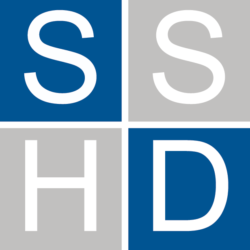Research in Human Development
Editors: Jennifer Brown Urban and Miriam Linver
Research in Human Development (RHD) is the flagship journal of SSHD. RHD is a lifespan, interdisciplinary, and integrative journal which focuses on thematic special issues.
To view the most recent table of contents, click here. To access exclusive content of RHD, first Log In and then go to Members Access. If you are not a member, you will need to Join or Renew your membership. Research in Human Development is published by Taylor & Francis
Editorial Board
Anthony Ong, Cornell University
Rachel Razza, Syracuse University
Kim Ferguson, Sarah Lawrence College
Zoe Klemfus, University of California, Irvine
Laura Wray Lake, University of California, Los Angeles
Rochelle Dalla, University of Nebraska - Lincoln
Alison Sidle Fuligni, California State University, Los Angeles
Valentina Lucia La Rosa, University of Catania
Editorial Scope
Research in Human Development seeks to promote an inclusive, integrative, and interdisciplinary approach to the study of human development across the entire lifespan. The integration of the person and their context across the life course is the focus of the scholarship promoted by this journal. Specifically, an interdisciplinary focus that incorporates biological, psychological, sociological, anthropological, economic, and historical perspectives will be stressed in the pages of RHD. To encompass such breadth, the publication will incorporate a variety of research methods, including quantitative, qualitative, and mixed methods approaches. The journal seeks to promote scholarship on the social, cultural, and national (global) contexts of human development across diverse ethnic and racial groups employing multiple methods. Finally, RHD seeks to promote scholarship that informs public policies and social programs that promote positive and healthy human development for all people. In short, by providing a forum for research that is lifespan-oriented, interdisciplinary, contextual, and methodologically diverse, the journal will continue to significantly advance the field of human development.
Audience
The audience consists of researchers, educators, policy makers, and practitioners in all fields which address human development.
Special Issue Proposals
RHD publishes thematic issues devoted to the integration of theory and research across the lifespan representing multiple disciplines and methodologies. This journal uses Routledge’s Submission Portal to manage the submission process. You will need an ORCiD ID to log in to the submission portal. If you do not already have an ORCiD account, creating one takes 30 seconds and will allow you to login to a variety of other publishers’ systems as well as uniquely identifying your contribution to the scholarly record.
We are particularly interested in proposals for special issues that provide cutting-edge perspectives on pressing topics such as gun violence, Autism, whole reading vs phonics, bullying, abortion rights and access, and global implications of climate change. We are also interested in special issues that focus on development in historically marginalized populations (e.g., racial/ethnic, LGBTQIA+, (dis)ability) and use less conventional analytical techniques (e.g., community-based participatory approaches, culturally responsive methods, person-centered analyses).
If you have an idea for a proposal, we recommend reaching out to the co-editors to talk through the feasibility and fit with RHD. Once you are ready to submit your proposal (no more than 5 single-spaced pages, please), it should describe:
-
- The theme for the issue and its significance for the field;
- How the collected papers meet the interdisciplinary, multi method, and lifespan goals of the journal;
- Biographical information of the editors, especially highlighting prior editorial experience;
- The titles and authors of each potential paper, as well as a paragraph describing the scope/questions/data source/analytic strategies of each paper;
- How the papers come together in important ways, as a collection, to inform the theme;
- List of proposed contributors and their titles and affiliations; and
- References, as appropriate
Most issues have 5 papers of about 25 pages each (not counting the title and abstract pages, but including everything else). The organization may vary by project. For example: a very brief introduction of a few pages, plus 5 empirical papers; or, a brief introduction, plus 1 theoretical/conceptual/literature-based manuscript and 4 empirical papers; or, a very brief introduction, plus 4 empirical pieces and a discussion essay. These proposals will be reviewed by the editors in consultation with the Editorial Board. Once a proposal has been reviewed and accepted, the manuscripts must be accompanied by a statement that they have not been published elsewhere and that the papers have not been submitted simultaneously for publication elsewhere. Authors are responsible for obtaining permission to reproduce copyrighted material from other sources and are required to sign an agreement for the transfer of copyright to the publisher. All accepted manuscripts, artwork, and photographs become the property of the publisher.
If you have a Special Issue idea or proposal, please send an email to Drs. Urban (urbanj@montclair.edu) and Linver (linverm@montclair.edu).
Open Access
You have the option to publish open access in this journal via our Open Select publishing program. Publishing open access means that your article will be free to access online immediately on publication, increasing the visibility, readership and impact of your research. Articles published Open Select with Taylor & Francis typically receive 95% more citations* and over 7 times as many downloads** compared to those that are not published Open Select.
Your research funder or your institution may require you to publish your article open access. Visit our Author Services website to find out more about open access policies and how you can comply with these.
You will be asked to pay an article publishing charge (APC) to make your article open access and this cost can often be covered by your institution or funder. Use our APC finder to view the APC for this journal.
Please visit our Author Services website if you would like more information about our Open Select Program.
*Citations received up to 9th June 2021 for articles published in 2016-2020 in journals listed in Web of Science®. Data obtained on 9th June 2021, from Digital Science's Dimensions platform, available at https://app.dimensions.ai
**Usage in 2018-2020 for articles published in 2016-2020.
Peer Review and Ethics
Taylor & Francis is committed to peer-review integrity and upholding the highest standards of review. Once your special issue proposal has been assessed for suitability by the editors, the guest editor(s) will be responsible for managing single blind peer review by independent, anonymous expert referees. If any of the issue authors have shared earlier versions of their manuscript on a preprint server, please be aware that anonymity cannot be guaranteed. Further information on our preprints policy and citation requirements can be found on our Preprints Author Services page which also contains our guidance on publishing ethics and more information about what to expect during peer review.

